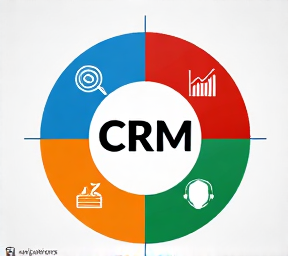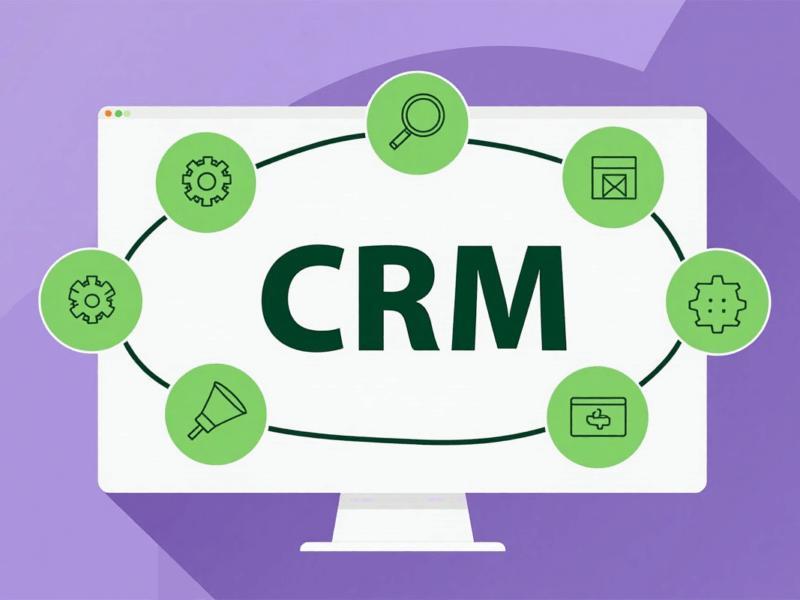The Role of Machine Learning in the Evolution of CRM in 2025: What You Need to Know
As we move further into the digital age, businesses are increasingly relying on technology to enhance their customer relationship management (CRM) strategies. One of the most significant advancements in this space is the integration of machine learning (ML) into CRM systems. By 2025, machine learning is expected to play a pivotal role in transforming how organizations interact with customers, analyze data, and optimize their marketing efforts. This article will explore the impact of machine learning on CRM, best practices for implementation, and what businesses need to know to stay ahead in this rapidly evolving landscape.
Understanding CRM and Machine Learning
What is CRM?
Customer Relationship Management (CRM) refers to a set of technologies and strategies that organizations use to manage interactions with current and potential customers. The primary goal of CRM is to improve business relationships, streamline processes, and enhance customer satisfaction. Modern CRM systems collect and analyze customer data from various touchpoints, enabling businesses to make informed decisions.
What is Machine Learning?
Machine learning is a subset of artificial intelligence (AI) that involves the use of algorithms and statistical models to enable computers to perform tasks without explicit instructions. Instead of following predefined rules, machine learning systems learn from data patterns and improve their performance over time. This capability makes machine learning particularly valuable in analyzing customer behavior and predicting future trends.
The Importance of Machine Learning in CRM
Enhanced Customer Insights
One of the most significant benefits of integrating machine learning into CRM systems is the ability to gain deeper insights into customer behavior. By analyzing vast amounts of data, machine learning algorithms can identify patterns that may not be immediately apparent.
Key Benefits of Enhanced Customer Insights
- Predictive Analytics: Machine learning can forecast future customer behavior based on historical data, allowing businesses to tailor their marketing strategies accordingly.
- Segmentation: ML algorithms can segment customers into distinct groups based on behavior, preferences, and demographics, enabling more targeted marketing efforts.
- Churn Prediction: By identifying at-risk customers through predictive modeling, businesses can implement retention strategies before losing valuable clients.
Automation of Routine Tasks
Machine learning can significantly enhance the efficiency of CRM systems by automating routine tasks such as data entry, lead scoring, and follow-up reminders.
Advantages of Automation
- Time Savings: Automating repetitive tasks allows employees to focus on more strategic activities that require human intervention.
- Increased Accuracy: Reducing manual data entry minimizes errors associated with human input.
- Improved Lead Management: Automated lead scoring helps prioritize leads based on their likelihood to convert, ensuring sales teams focus on high-potential prospects.
Personalization at Scale
In today’s competitive market, personalized customer experiences are essential for building loyalty. Machine learning enables businesses to deliver hyper-personalized content and recommendations at scale.
How Machine Learning Enhances Personalization
- Dynamic Content Recommendations: ML algorithms analyze customer behavior in real-time to suggest relevant products or services.
- Tailored Communication: Businesses can create personalized email campaigns based on individual customer preferences and past interactions.
- Behavioral Targeting: Machine learning helps identify which segments respond best to specific marketing messages, allowing for more effective targeting.
Best Practices for Integrating Machine Learning into CRM Systems
To effectively integrate machine learning into your CRM strategy, consider the following best practices:
1. Define Clear Objectives
Before implementing machine learning capabilities within your CRM system, it’s crucial to define clear objectives. Determine what you hope to achieve with machine learning—whether it’s improving customer retention rates or increasing sales conversions.
Key Questions to Consider
- What specific outcomes do you want from implementing machine learning?
- How will you measure success?
- What resources do you need for implementation?
2. Choose the Right Tools
Selecting the right tools is essential for successful integration. Look for CRM platforms that offer built-in machine learning capabilities or allow for easy integration with third-party ML solutions.
Popular CRM Platforms with ML Capabilities
- Salesforce Einstein: Offers AI-powered features that provide predictive analytics and personalized recommendations.
- HubSpot: Integrates machine learning algorithms for lead scoring and email personalization.
- Zoho CRM: Includes AI features for sales predictions and customer insights.
3. Invest in Data Quality
Machine learning relies heavily on data quality. Ensure that your customer data is accurate, complete, and up-to-date before implementing ML algorithms.
Tips for Maintaining Data Quality
- Regular Audits: Conduct regular audits of your data to identify inconsistencies.
- Standardization: Use standardized formats for data entry to reduce errors.
- Validation Rules: Implement validation rules within your forms to ensure accurate data collection.
4. Train Your Team
Investing in training for your team is essential for maximizing the benefits of machine learning in your CRM system. Ensure that employees understand how to leverage ML features effectively.
Training Topics to Cover
- System Navigation
- Data Entry Best Practices
- Campaign Creation and Management
- Reporting and Analytics Interpretation
5. Monitor Performance Metrics
After integrating machine learning capabilities into your CRM system, continuously monitor performance metrics related to customer engagement and sales outcomes.
Key Metrics to Track
- Conversion Rates: Measure how many leads convert into customers.
- Engagement Rates: Track how engaged your audience is with your campaigns.
- ROI Analysis: Evaluate the return on investment for your integrated efforts.
The Future of Machine Learning in CRM
As technology continues to evolve, so too will the capabilities of machine learning within CRM systems. Businesses should stay informed about emerging trends that could impact their customer relationship strategies:
1. Advanced Predictive Analytics
The future of CRM will see even more sophisticated predictive analytics capabilities powered by machine learning. These advancements will allow businesses to forecast trends more accurately and make proactive decisions based on real-time data analysis.
Benefits of Advanced Predictive Analytics
- Improved Sales Forecasting: Businesses can anticipate sales trends more accurately.
- Enhanced Customer Retention Strategies: Identifying at-risk customers earlier allows for timely intervention.
2. Hyper-Personalization through AI
As consumer expectations continue to rise, hyper-personalization will become a key focus for businesses leveraging machine learning in their CRM strategies. This involves delivering highly tailored experiences based on individual preferences and behaviors.
Implementation Strategies for Hyper-Personalization
- Utilize AI-driven insights from customer interactions.
- Create dynamic content that adapts based on user behavior.
3. Integration with IoT Devices
The integration of IoT devices with CRM systems will provide even more data points for analysis. This will enable businesses to gain deeper insights into customer behavior and preferences.
Potential Applications of IoT Integration
- Real-time monitoring of product usage can inform marketing strategies.
- Enhanced personalization based on actual product interaction data.
Conclusion
The role of machine learning in the evolution of CRM systems is becoming increasingly significant as we approach 2025. By enhancing customer insights, automating routine tasks, and enabling hyper-personalization at scale, machine learning has the potential to transform how businesses engage with their customers.To successfully integrate machine learning into your CRM strategy, it’s essential to define clear objectives, choose the right tools, invest in data quality, train your team effectively, and monitor performance metrics regularly. By embracing these best practices, organizations can leverage the full potential of machine learning within their CRM systems.As technology continues to advance, staying informed about emerging trends will help businesses adapt their strategies accordingly. The future holds exciting possibilities for those willing to embrace innovation in their customer relationship management efforts.For additional information on integrating technology into business processes or enhancing customer engagement strategies through advanced tools like CRMs or marketing automation platforms, check out this resource.


